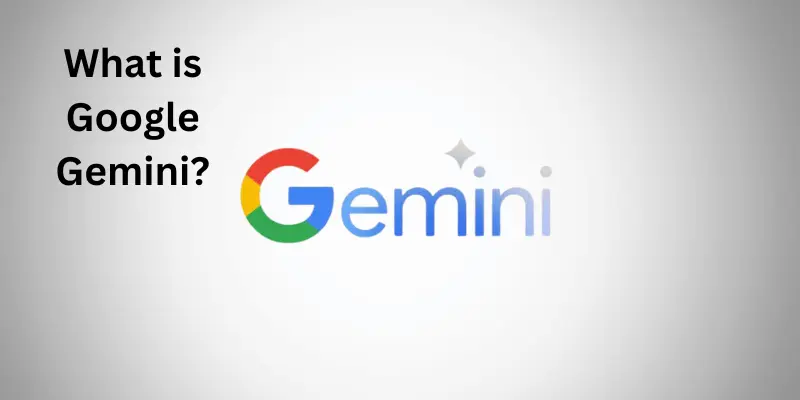Google Gemini Will Use Your Search History to Deliver Better Results
Published: March 8, 2025
Google Gemini Will Use Your Search History to Deliver Better Results. Let’s learn bout it.
Google is constantly improving how we search for information, and its latest AI model, Google Gemini, is a big step forward in the technology world.
Gemini is designed to understand and respond more naturally and intelligently, making searches faster, smarter, and more personalized.
Now, Google is introducing a new feature that allows Gemini to use your search history to deliver better, more relevant results.
This means that instead of giving generic answers, Gemini can learn from your past searches and tailor its responses to match your interests and preferences.
This update is important because it helps users find what they need faster and get results that are actually useful.
Plus, Google is giving users full control, so you can manage, review, or even delete your search history whenever you want.
In this blog, we’ll explore how this feature works, its benefits, and how you can control your data while enjoying a smarter search experience with Google Gemini.
What is Google Gemini?

Google Gemini is an advanced AI-powered assistant designed to make searching for information smarter, faster, and more interactive.
Unlike regular Google Search, which simply gives you a list of links, Gemini understands your questions better and provides more direct, helpful answers.
How is Google Gemini Different from Traditional Search?
- Conversational AI: Instead of just typing keywords and getting links, you can chat with Gemini and ask follow-up questions like you would with a person.
- Context Awareness: Gemini remembers your previous searches (if enabled) and can provide more personalized answers.
- Multimodal Capabilities: Unlike traditional Google Search, which mainly works with text, Gemini can analyze images, videos, and even voice inputs to give more detailed responses.
- AI-Powered Assistance: It can help with summarizing articles, generating ideas, and even writing content—something traditional Google Search doesn’t do.
How Does Gemini Enhance AI Interactions?
Gemini isn’t just about finding information—it’s designed to understand and assist.
Whether you need help with research, planning trips, learning new skills, or even solving complex problems, Gemini can provide relevant insights and suggestions based on its AI knowledge and (if enabled) your personal search history.
In short, Google Gemini is like having a smarter, more interactive version of Google that can adapt to your needs and make searching more efficient and personalized.
Google Gemini Will Use Your Search History – How?
Google Gemini is designed to provide more relevant and personalized search results, and one of its latest updates allows it to use a user’s search history to refine its responses.
Instead of offering generic answers, Gemini can now analyze past searches to understand user preferences and deliver results that better align with individual needs.
How Does This Feature Work?
This personalization feature works through Google’s Web & App Activity setting, which, when enabled, allows Google to store and analyze search history.
By examining previous searches, Gemini can identify patterns in user behavior and generate responses that are more context-aware and tailored to specific interests.
For example, if a user frequently searches for technology news, Gemini will prioritize results from reliable tech sources.
If someone regularly looks up fitness tips, Gemini may start suggesting related articles, workout plans, or dietary advice.
This ability to adjust responses based on past interactions makes the search process more efficient and reduces the time spent filtering through irrelevant information.
How Web & App Activity Enables This Functionality
Web & App Activity is a setting within a user’s Google account that, when turned on, saves searches, website visits, and interactions with Google services.
This data helps Google understand user preferences and improve recommendations across its platforms.
For Gemini, this feature plays a crucial role in:
- Recognizing frequently searched topics and adjusting responses accordingly.
- Providing smarter recommendations based on historical data rather than general search trends.
- Enhancing conversational AI interactions by allowing Gemini to remember previous questions and offer more contextual responses.
If a user searches for information about a specific topic over time, Gemini can connect related searches, provide deeper insights, and even predict follow-up queries.
The Process of Analyzing Past Searches to Refine Results
Google Gemini follows a multi-step process to use search history effectively:
- Data Collection (If Enabled): When Web & App Activity is turned on, Google records search queries and website visits.
- Pattern Recognition: The AI analyzes the frequency and type of searches performed by the user.
- Contextual Understanding: Gemini connects past searches to understand the intent behind them.
- Personalized Response Generation: Based on this analysis, Gemini provides more accurate, detailed, and relevant answers.
For instance, if a user searches for the best smartphones of 2024, Gemini might follow up with suggestions like smartphone comparisons, camera quality analysis, or software update news, even if the user has not explicitly requested them.
This process allows Gemini to offer an intuitive and engaging search experience.
Examples of How Search History Improves Responses
- Learning Preferences: If a user frequently searches for a particular cuisine, Gemini might suggest recipes, cooking techniques, or nearby restaurants that match their preferences.
- Industry-Specific Searches: A person researching investment strategies will receive insights tailored to their past queries, such as stock market trends, trading tips, or economic forecasts.
- Academic and Research Assistance: A student studying artificial intelligence may receive advanced reading materials, research papers, and related study topics based on past searches.
Why This Feature is Beneficial
This new integration enhances the search experience by:
- Reducing repetitive searches by remembering user preferences.
- Saving time by quickly providing more relevant results.
- Improving search accuracy by filtering out unnecessary or unrelated information.
By leveraging past search data, Google Gemini ensures that users receive more meaningful and useful information without having to refine their search queries repeatedly.
However, Google also offers full control over search history settings, allowing users to review, delete, or turn off data collection at any time through Google’s My Activity portal.
This balance between personalization and user control ensures that Gemini can offer a more intelligent, adaptive, and user-friendly search experience while maintaining privacy and data security.
Privacy and User Control
Google understands that privacy is important, and it has built several tools to ensure that users have full control over their search history.
While Google Gemini uses past searches to improve results, it also gives users the power to manage, review, or delete their data at any time.
How Google Ensures User Data Privacy
Google follows strict privacy policies and security measures to protect user data. Here’s how it keeps your information safe:
- Data encryption: All search history is securely stored and protected from unauthorized access.
- Limited access: Your search history is not shared with advertisers or third parties. It is only used to improve your search experience.
- Transparency: Google provides clear explanations on how it collects and uses data, so users always know what’s happening.
Managing, Reviewing, or Deleting Search History
Users can easily check, edit, or erase their search history whenever they want. Google provides a simple way to:
- Review past searches to see what information is stored.
- Delete specific searches or clear all search history.
- Pause or disable history tracking if they don’t want Gemini to use past searches for personalization.
Google’s My Activity Portal for Data Control
Google’s My Activity portal is the main place where users can manage their data. This portal allows users to:
- View all past searches made through Google services.
- Delete history for a specific day, week, or completely.
- Set auto-delete options to remove history after a certain time (e.g., 3 months, 18 months).
- Users can access My Activity by visiting myactivity.google.com and adjusting their preferences.
Steps to Opt-In or Opt-Out of the Feature
Google gives users full control over whether they want their search history to be used for better results. Here’s how to enable or disable the feature:
To Enable (Opt-In):
- Go to Google’s My Activity.
- Click on Web & App Activity settings.
- Turn ON history tracking to allow Gemini to personalize search results.
To Disable (Opt-Out)
- Open Google My Activity settings.
- Select Web & App Activity and turn it OFF.
- Choose “Delete history” if you want to remove previously stored searches.
Google ensures that users have full transparency and control over their data.
How to Enable or Disable This Feature
Google gives users full control over whether they want their search history to be used for improving search results. If you want to enable or disable this feature, follow these simple steps.
Turning Web & App Activity ON or OFF
Google uses Web & App Activity to track your past searches and provide better results. Here’s how to enable or disable it:
To Enable (Turn ON)
- Go to Google’s My Activity page: myactivity.google.com.
- Click on “Web & App Activity” under the Activity Controls section.
- Toggle the switch ON to allow Google Gemini to use your search history for better results.
- (Optional) Select “Include Chrome history and activity from sites, apps, and devices” if you want even more personalized results.
To Disable (Turn OFF)
- Open Google’s My Activity page.
Click on “Web & App Activity.” - Toggle the switch OFF to stop Google from using your search history.
Confirm your choice and select whether you want to delete existing history.
Managing Search History in Google Settings
If you want to control what Google stores, you can review or delete specific search history items:
To View History
- Visit My Activity.
- Scroll through the list of past searches and activities.
To Delete History
- Click on “Delete” next to any search item.
- Or tap “Delete Activity By” to erase searches from a specific time period (last hour, last day, or all time).
To Set Auto-Delete
In My Activity settings, go to “Auto-delete” and choose how long Google should keep your history (3, 18, or 36 months).
Customizing Google Gemini’s Personalization Settings
If you want to keep Web & App Activity ON but adjust how much personalization Google Gemini uses, you can customize the settings:
- Go to Google Assistant settings (Google Assistant Settings).
- Click on “Personalization.”
- Adjust how much past data Google Gemini uses for responses.
- Save your preferences.
Google makes it easy to turn search history tracking ON or OFF, giving you full control over personalization.
Whether you want highly customized results or prefer more privacy, you can adjust these settings anytime in Google My Activity.
Potential Concerns & Google’s Approach
Many users worry about privacy and data security when AI systems like Google Gemini use search history for personalization. It’s natural to ask:
- Is my data safe?
- Who can access my search history?
- How does Google protect my privacy?
Google understands these concerns and has put strict security measures in place. Let’s take a closer look at common worries and how Google addresses them.
Common Concerns About Data Security & Privacy
Users often have these three main concerns when it comes to AI and search history:
- Data Security – Is my search history protected from hackers?
- Privacy – Will my information be shared with advertisers or third parties?
- Control – Can I stop Google from tracking my searches if I want to?
These are valid questions, and Google has worked to provide strong protections while still offering helpful AI-powered search results.
How Google Addresses Security Risks
Google takes several steps to ensure your data stays safe:
- Encryption: All search history is securely stored and encrypted to prevent unauthorized access.
- Limited Access: No one (not even Google employees) can see your personal search history.
- No Third-Party Sharing: Google does not sell or share your search data with advertisers.
By using advanced security technology, Google ensures that only you have access to your personal search history.
Transparency in AI Learning & Personalization
Google is committed to transparency, meaning it clearly explains how Gemini learns from search history and how users can control it.
Clear Settings – Google provides easy-to-use settings to manage search history and AI personalization.
My Activity Portal – Users can review, delete, or turn off search tracking anytime at My Activity.
AI Learning Controls – If users don’t want Google Gemini to use past searches, they can adjust AI personalization settings.
Google knows that privacy is a top priority, which is why it offers strong security measures, complete transparency, and user control.
If you’re concerned about AI using your search history, you can easily manage or disable this feature anytime.
FAQs
Google Gemini is an advanced AI system designed to improve search and interactions. It can understand complex queries, generate answers, and personalize search results using AI-driven learning.
Google Gemini analyzes your past searches to deliver more relevant and accurate results. It helps provide personalized recommendations and faster responses based on your interests.
Yes, you can disable search history tracking anytime by visiting Google My Activity and turning off “Web & App Activity.”
No, Google does not share your personal search history with advertisers or third parties. All data is securely stored and used only to improve your search experience.
Google uses encryption, secure storage, and strict access controls to protect your data. Your search history is private and cannot be accessed by unauthorized users.
If you delete your search history, Google Gemini will no longer use past searches to personalize results. However, future searches may still be analyzed if Web & App Activity is turned on.
You can view and manage your search history by going to My Activity. Here, you can check past searches, delete specific entries, or set auto-delete options.
Yes, disabling search history means Google Gemini won’t tailor results based on past searches. You’ll still get accurate results, but they won’t be as personalized.
Yes, you can adjust AI personalization settings in Google Assistant settings. This lets you control how much of your search data is used to refine responses.
Yes, Google Gemini works on mobile phones, tablets, and desktop devices. It integrates with Google Search, Assistant, and other Google services for a seamless experience.
Final Thoughts
Google Gemini’s ability to use search history makes searching smarter, faster, and more personalized.
Learning from past searches it helps deliver more relevant results, better recommendations, and improved AI responses.
At the same time, Google ensures strong privacy protections with encryption, user control settings, and the option to manage or delete your history anytime.
If you prefer not to use this feature, you can easily opt out through Google’s settings.
In the end, this update is all about giving users a better search experience while keeping privacy and security in mind.
Whether you choose to enable or disable it, Google Gemini continues to evolve to make AI-powered search even more helpful.
Bonus Info Points
- You Have Full Control – Google gives you the power to enable, disable, or delete your search history anytime.
- Faster Search, Better Results – With past search data, Google Gemini can provide quicker and more accurate answers.
- Works Across Devices – Whether you’re using a phone, tablet, or computer, this feature works seamlessly across all Google services.
- Safe & Secure – Your search history is encrypted and private, meaning no one else can access it.
- You Can Customize It – You can adjust personalization settings to choose how much Gemini learns from your past searches.
- It’s Optional – If you prefer not to use search history for personalization, you can turn it off anytime in Google’s settings.

- Be Respectful
- Stay Relevant
- Stay Positive
- True Feedback
- Encourage Discussion
- Avoid Spamming
- No Fake News
- Don't Copy-Paste
- No Personal Attacks



- Be Respectful
- Stay Relevant
- Stay Positive
- True Feedback
- Encourage Discussion
- Avoid Spamming
- No Fake News
- Don't Copy-Paste
- No Personal Attacks





